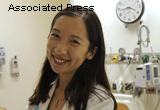 One of the many takeaways from this week’s excellent Preventing Overdiagnosis Conference is that it’s hard for doctors to tell their patients that too much care is bad.
One of the many takeaways from this week’s excellent Preventing Overdiagnosis Conference is that it’s hard for doctors to tell their patients that too much care is bad.
For so long, the rhetoric has been about the danger of too little care. Newspapers brim with stories of death from missed diagnosis and lack of access to care. TV shows glorify the detective-doctor who doesn’t give up and persists on ordering test after test in order to solve an esoteric case.
Over the last decade, there is mounting evidence illustrating the harms of overdiagnosis and overtreatment. Risk factors have been turned into diseases, and diseases are being created for the purpose of selling medications. Dartmouth’s Dr. Lisa Schwartz told the story of how GlaxoSmithKline created a new disease entity—restless leg syndrome—to find a new use of an existing medication that was going off patent. The American Cancer Society’s chief medical officer, Otis Brawley, discussed how hospitals offer “free” screening tests knowing that they will lead to false positives, thus creating a market for further testing and more care.
Who is to blame for “selling sickness?” No doubt, big pharma and hospital corporations are culpable. They feed into patients’s fears. Maybe your doctor hasn’t heard of this “new” disease. Maybe she has financial incentives to prescribe you the rival medication. Why not take control of your health, and heed the advertisements to “ask your doctor about” the latest medication and the full-body CT scan?
There is another party that is just as guilty in the crime of disease mongering. It is doctors who are complicit with drug companies by speaking about “new” diseases and prescribing unnecessary medications. It is doctors who are complicit with hospitals by ordering unnecessary tests. It is doctors who instilled in our patients the blind faith in technology and the boundless optimism in treatments.
Combating overdiagnosis must begin with doctors acknowledging that we are part of the problem. The foundation of medical care is trust, and this trust is being eroded by financial incentives and conflicts of interest. We need to address this and reassure our patients that we are fully on their side.
Just as our profession stepped up to address critical issues such as access to care and medical error, we must have the courage to admit our contribution to the growing health threat of too much care. This will not be easy—but we must have the courage to reinstill trust, and do what’s right by our patients and our society.
Leana Wen, is an attending emergency physician and director of patient centered care research at George Washington University. She is the author of When Doctors Don’t Listen: How to Avoid Misdiagnoses and Unnecessary Tests, and serves on the advisory council of Lown Institute’s Right Care Alliance. For more information, visit her blog The Doctor is Listening or her website. Follow @DrLeanaWen.
Competing interests: The author has completed the ICMJE uniform disclosure form at www.icmje.org/coi_disclosure.pdf and declare: no support from any organisation for the submitted work; she is an unpaid consultant to the Lown Institute, Patient-Centered Outcomes Research Institute, and Medical Education Futures Project; no other relationships or activities that could appear to have influenced the submitted work.”
